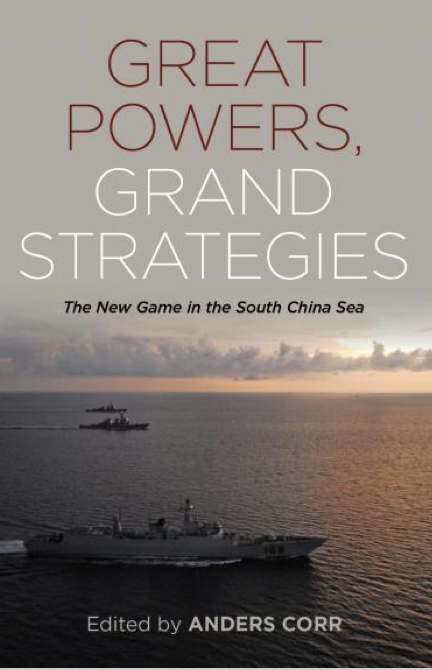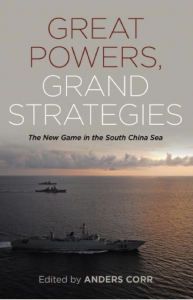
“We’re going to war in the South China Sea … no doubt.’’
—Steve Bannon, former Trump policy advisor.
The South China Sea has been a churning cauldron of controversy over Paracel and Spratly Islands since the third century BC, when what is now the Peoples Republic of China claimed the islands for themselves.
In recent times, armed battles between China and other claimants of the islands and surrounding waterways have become concerning—particularly when it comes to the new role Vietnam is playing as a U.S. ally in the effort to maintain the balance of power in the region.
The region has been largely ignored by the US, which tends to focus on the Middle East. Of late, the White House has been pressuring China to tamp down North Korea’s nuclear ambitions, making it difficult to confront Xi, the Chinese leader, over his aspirations in Southeast Asia.
Six months ago, former Trump advisor Steve Bannon stated bluntly in an interview. ‘We’re going to war in the South China Sea … no doubt.’’
Amidst the controversy, which has sparked deadly conflict between Chinese warships and Philippine and Vietnamese commercial and military vessels, comes Great Powers, Grand Strategies: the New Game in the South China Sea, a book to be released on January 15 by the Naval Institute Press.
The volume, written by a group of foreign policy and diplomacy authorities and edited by Corr, examines China’s desire to project its power in this vital region for shipping, fishing, and oil exploration as part of a strategy aimed at projecting power and influence worldwide. Corr is founder and CEO of Corr Analytics in New York, which helps governments and businesses evaluate strategic and international political risks as part of their decision-making process.
In the book, Corr maintains that Vietnam, the Philippines, Brunei and other Southeast Asian Nations (ASEAN) with a stake in maintaining peaceful, multifaceted trade relations with China are being blackmailed by China’s overreach, while the United States needs to maintain its Naval presence in the Pacific or cede American influence and power to China.
“This book is the first to focus on major power grand strategies including economic, diplomatic, and military strategies, and their interrelationships so that we can explore how global actors are, on the one hand, contributing to the solution and, on the other hand, perpetuating conflict,” he explains.

Corr cites China’s actions as ample reason for the US Navy to maintain its cautionary presence in the Pacific, which he regards as, “part of a global system of defense of not only the United States but its allies and values, which include international law, democracy, and human rights. To criticize the United States deployment in the Pacific as offensive without geographic context ignores the global picture and principles the United States is defending.
Corr calls into question China’s disputed claims to the Spratly Islands and sea lanes in the South China Sea and its maneuvering to control the territory militarily. After having established its boot print in theglobal system of defense of not only the United States but its allies and values, which include international law, democracy, and human rights. To criticize the United States deployment in the Pacific as offensive without geographic context ignores the global picture and principles the United States is defending.
“Viewing China’s presence in the South China Sea as defensive against U.S. forward deployment ignores China’s similar offensive actions in the East China Sea and Himalayan region of India, ” Corr adds. He decries China’s suppression of democracy, human rights, and international law in Asia and abroad and its efforts to remake global governance to its own advantage rather than on principles of democracy, stating, “China’s South China Sea actions are offensive when viewed in this global context.”
The volume assembles the thinking of foreign policy authorities Bill Hayton, Gordon Chang, Bernard Cole, James Fanell, and others who examine the conflict in the context of a global big picture.
As editor, Corr juxtaposes the grand strategies of the great powers to determine the likely outcomes of the dispute, and suggests ways to defuse tensions that are likely to spill over to other regions.
Corr has visited all South China Sea claimant countries, undertaking research in Vietnam, the Philippines, Taiwan, and Brunei. He has also conducted analysis for USPACOM, CENTCOM, and NATO, including work in Bangladesh, Afghanistan, and Ukraine.
[Great Powers, Grand Strategies, China & the Asia Pacific ( Naval Institute Press, January 15, 2018. 336 pp, Hardcover & eBook $34.95, ISBN: 978-1-68247-235-4]
Dick Pirozzolo is managing director of Pirozzolo Company Public Relations, an international corporate communications firm based in Boston. He coauthored “Escape from Saigon, a novel focusing on the last month of Vietnam War, in 1975.
New Cambridge Observer is a publication of the Harris Communications Group, an award-winningconten digital marketing and content strategy firm based in Cambridge, MA–of which Pirozzolo is a member.




